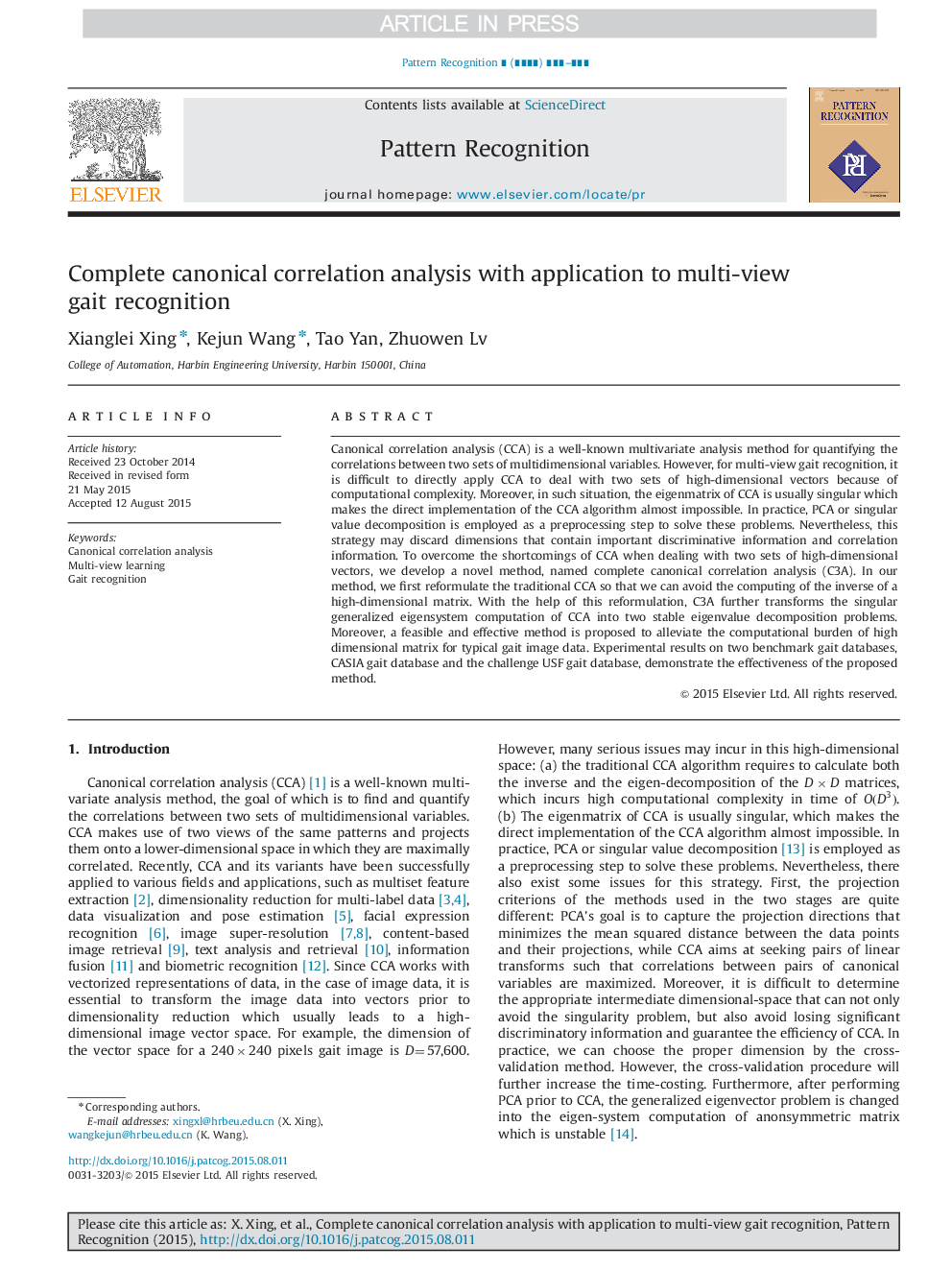| Article ID | Journal | Published Year | Pages | File Type |
|---|---|---|---|---|
| 6940065 | Pattern Recognition | 2016 | 11 Pages |
Abstract
Canonical correlation analysis (CCA) is a well-known multivariate analysis method for quantifying the correlations between two sets of multidimensional variables. However, for multi-view gait recognition, it is difficult to directly apply CCA to deal with two sets of high-dimensional vectors because of computational complexity. Moreover, in such situation, the eigenmatrix of CCA is usually singular which makes the direct implementation of the CCA algorithm almost impossible. In practice, PCA or singular value decomposition is employed as a preprocessing step to solve these problems. Nevertheless, this strategy may discard dimensions that contain important discriminative information and correlation information. To overcome the shortcomings of CCA when dealing with two sets of high-dimensional vectors, we develop a novel method, named complete canonical correlation analysis (C3A). In our method, we first reformulate the traditional CCA so that we can avoid the computing of the inverse of a high-dimensional matrix. With the help of this reformulation, C3A further transforms the singular generalized eigensystem computation of CCA into two stable eigenvalue decomposition problems. Moreover, a feasible and effective method is proposed to alleviate the computational burden of high dimensional matrix for typical gait image data. Experimental results on two benchmark gait databases, CASIA gait database and the challenge USF gait database, demonstrate the effectiveness of the proposed method.
Related Topics
Physical Sciences and Engineering
Computer Science
Computer Vision and Pattern Recognition
Authors
Xianglei Xing, Kejun Wang, Tao Yan, Zhuowen Lv,
